On January 28, after U.S. President Donald Trump announced his Middle East peace plan, Prime Minister Benjamin Netanyahu left the White House accompanied by victorious fanfare, believing that in less than a week he would table plans for annexation of the Jordan Valley and all Israeli settlements in the West Bank for the government's approval.
Since then, however, a rift has opened between Washington and Netanyahu, who is now trying to bridge the gap on various issues, while also trying to save face.
5 View gallery
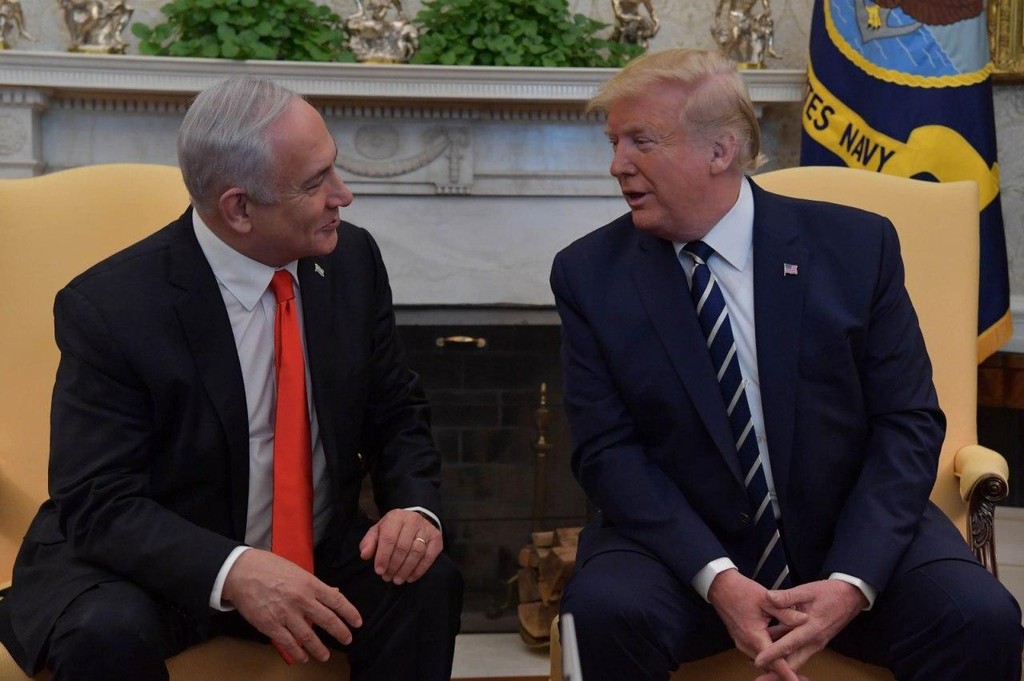

Prime Minister Benjamin Netanyahu and U.S. President Donald Trump at the White House
(Photo: GPO)
Netanyahu on Sunday is set to convene another meeting attended by U.S. Ambassador to Israel David Friedman, Defense Minister Benny Gantz, Foreign Minister Gabi Ashkenazi, and Knesset Speaker Yariv Levin to devise an outline for the move that all parties can agree on.
It is already quite clear to Jerusalem that the dream of full annexation, which includes 30 percent of the West Bank, has been shattered and is probably not going to happen before the U.S. elections in November.
Trump is now in a completely different place. He's fighting for his legacy in the face of the coronavirus outbreak, an economic crisis and racial justice riots. With all due respect to the Israelis, the annexation of settlements is the least of his concerns.
The White House seems to have accepted the position of Trump's adviser, Jared Kushner - who opposes full annexation - probably due to the tremendous pressure exerted on him by the Jordanians, the Saudis, and the Gulf states.
5 View gallery
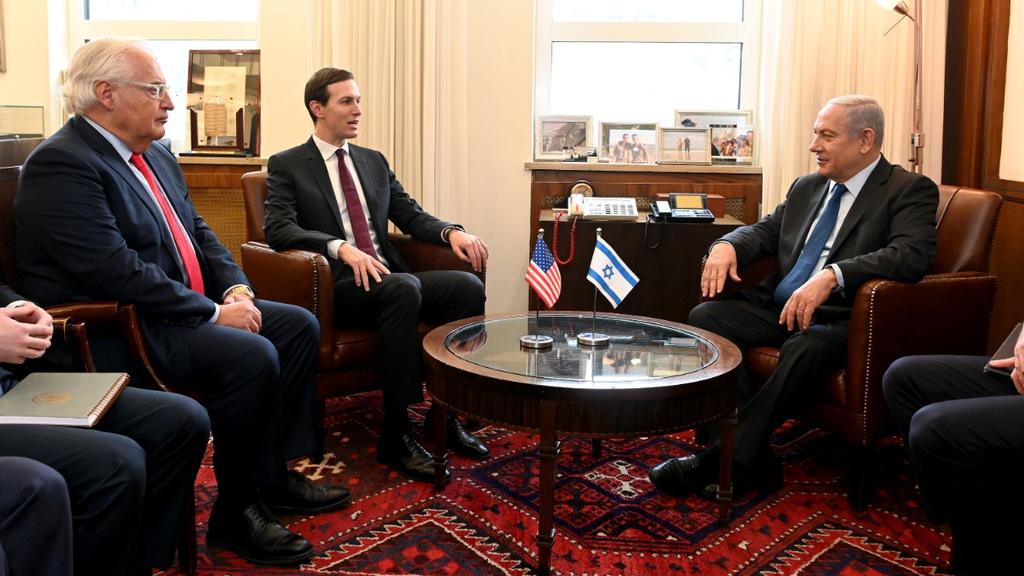

U.S. Ambassador to Israel David Friedman, U.S. President Donald Trump's top adviser Jarred Kushner, and Prime Minister Benjamin Netanyahu at the U.S. Embassy in Jerusalem
(Photo: Matty Stern/U.S. Embassy Jerusalem)
Those who backed full annexation – for instance Friedman (an ardent supporter of the settlements) - have become, according to senior officials in Netanyahu's government, less dominant in the Trump administration with Kushner the one dictating the policies.
Gantz and Ashkenazi, who only support a partial annexation, also found themselves neck-deep in this mire. The Americans made it clear that any move towards annexation is contingent upon a full agreement between their Blue & White party and Netanyahu's Likud.
Behind closed doors, these talks also center on only partial annexation. The Americans apparently are ready to greenlight the annexation of just one of the settlement blocs at the heart of the Israeli consensus - Ma'aleh Adumim or Gush Etzion - but not both.
However, U.S. officials seem to oppose the annexation of the strategic Jordan Valley for fear of undermining Jordan's political stability.
5 View gallery
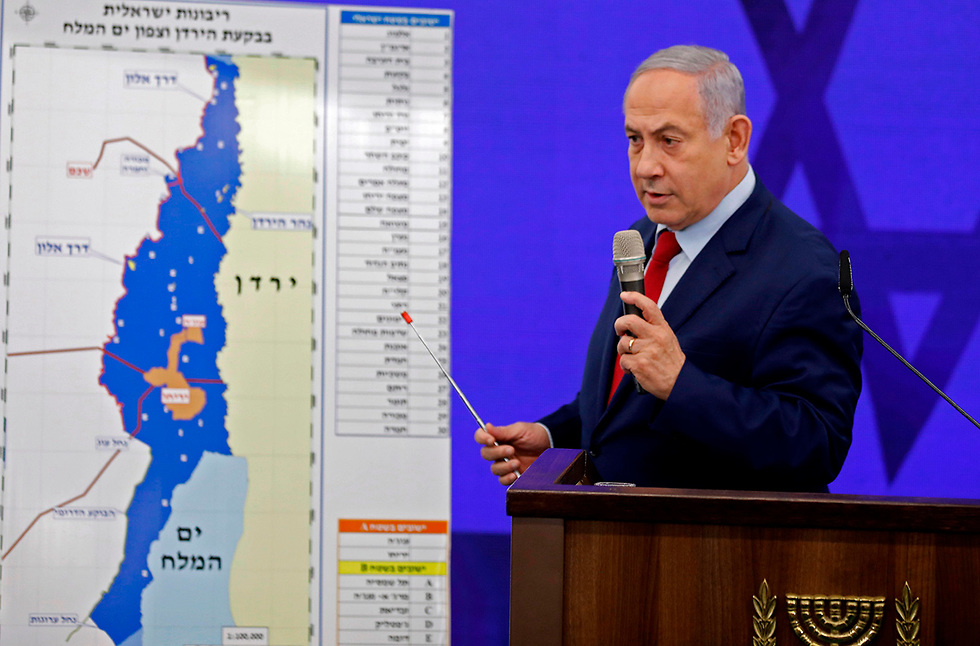

Prime Minister Benjamin Netanyahu presents his plan to extend Israeli sovereignty over the Jordan Valley
(Photo: AFP)
Netanyahu, on the other hand, is not ready to settle for annexing just one bloc. According to ministers in his government, the annexation of only one bloc is a red line for Netanyahu, and he will insist on maximizing any territorial gains as much as possible.
Behind the scenes, the parties are trying to reach a compromise – one that will see annexation of at least one extra settlement, such Beit El or Ofra.
Senior government officials say Netanyahu opposes the annexation of one bloc for fear that it would anger his right-wing voter base, who in turn would label him as the one who abandoned the settlements.
Netanyahu, therefor, strives to maximize territorial gains because he knows such a historic opportunity might not present itself ever again.
5 View gallery
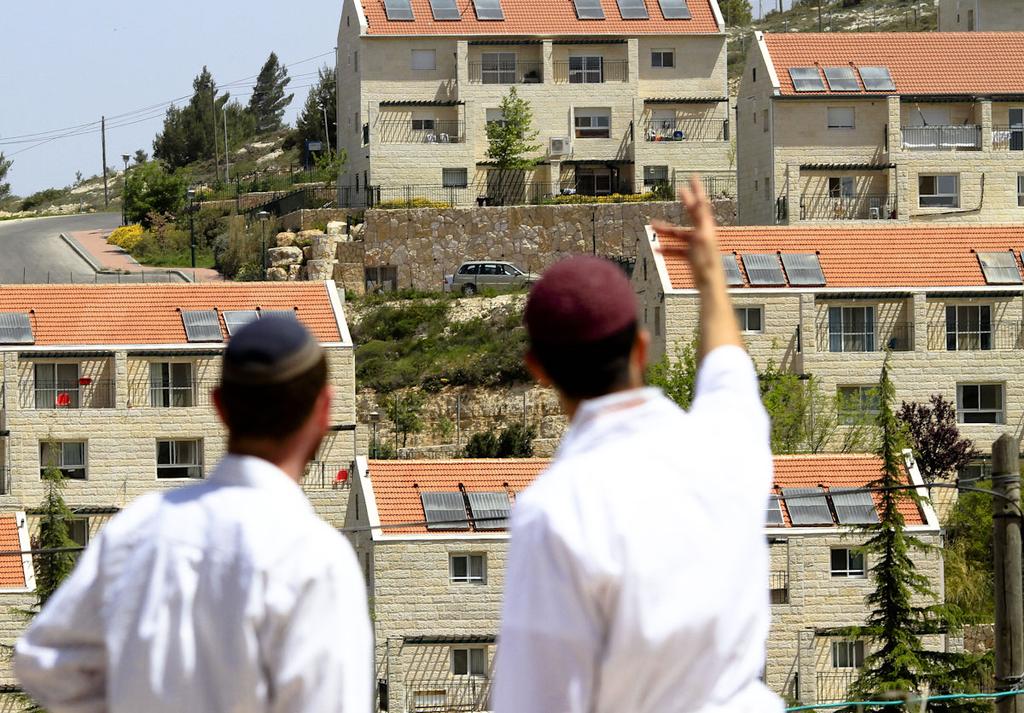

Two Jewish men standing in front of the West Bank settlement of Ofra
(Photo: Amir Levy)
During recent talks, Trump's people have made it clear that they do not want the annexation process to take place at a time close to the U.S. election - set to take place on Nov. 3 - but some months prior.
There is currently no consensus over the outline of the move and those involved talk about three possible scenarios:
The pessimistic – the Americans, terrified of the Arab world's threats, would pull the plug on the whole annexation process.
The optimistic – the Americans, trying to pander to evangelical voters, will give Netanyahu a green light for full annexation, which seems very unlikely.
The realistic – all parties will eventually agree on a partial outline that would see Israel annex one of the major settlement blocs, plus another few settlements as to not abandon the more remote ones.
5 View gallery
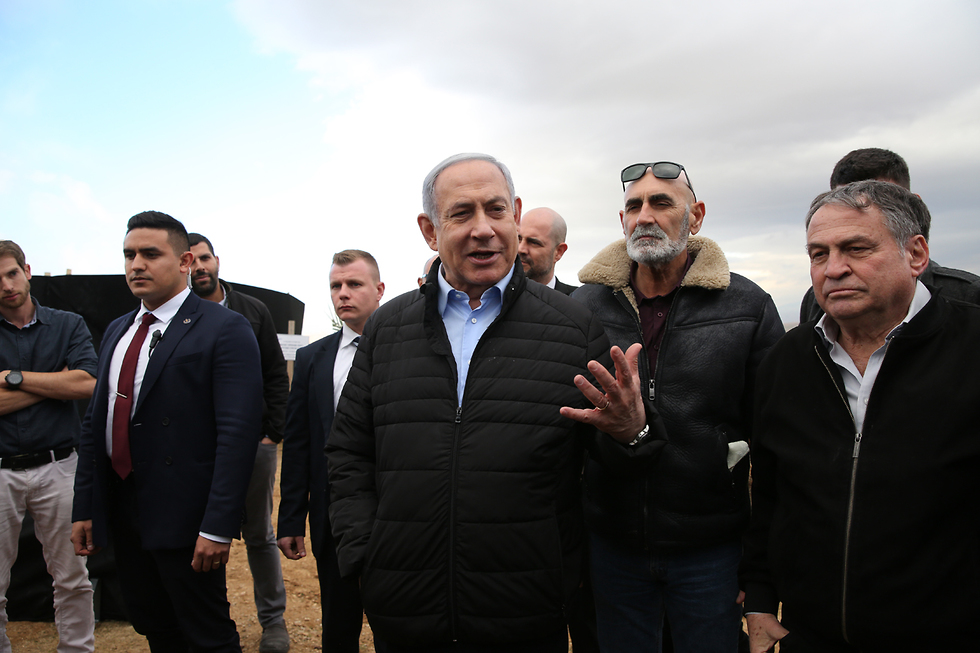

Prime Minister Benjamin Netanyahu and his entourage visiting the Jordan Valley
(Photo: Alex Kolomoisky)
Gantz - who is set to replace Netanyahu in over a year - took to Twitter to present his take on the initiative.
"I have been engaged in President Trump's peace plan with the goal of bringing a responsible political achievement to Israel in order to safeguard the state and its future as a Jewish and democratic country," he wrote.
"Since the establishment of the government, I have held policy meetings and telephone conversations with the U.S. Secretary of State [Mike Pompeo], the U.S. Secretary of Defense [Mark Esper], the Canadian prime minister [Justin Trudeau], the German foreign minister [Heiko Maas], the EU foreign minister [Josep Borrell], and many others. This ongoing process strengthens Israel's security."

